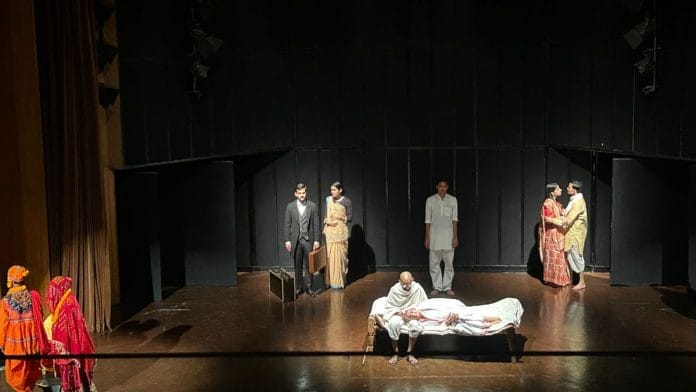New Delhi: In her white cotton sari, Kasturba Gandhi walks slowly across the stage and intones what India, and the world, already know. She is just a woman. She is MK Gandhi’s wife. But thespian Shilpi Marwaha does not accept this.
“I don’t want the world to see her as Kasturba Gandhi, I want the world to see her as just Kasturba, who had her own identity,” said Marwaha, director of the play, Kasturba versus Gandhi. And when Gandhi is removed, what the audience gets is a woman who fought for her marriage and her family while her husband was fighting for India’s freedom. Kasturba versus Gandhi was performed to a packed theatre at Stein Auditorium, India Habitat Centre on 18 January.
Kasturba versus Gandhi is part of a growing canon of literature that’s revisiting women’s place in history. A feminist take on the relationship women had with the historical male figures that countries mythicise and worship. Whether it is Martin Luther King, BR Ambedkar, or even the mythical Penelope waiting for Ulysses to return home from his adventures, their marriages are beginning to be put under feminist audit. Instead of viewing Kasturba as the perfect foil to Gandhi, a mere supporting character, the play attempts an important decoupling of her identity.
The play begins with the last moment in her life—her death. Marwaha gives the audience two versions. In one, Kasturba lays her head on Gandhi’s lap gently and in a fading voice speaks her final words, “I am just a woman, just your wife…The world will always just remember you.”
But there’s another scene unfolding parallelly on the other side of the stage. Here, Kasturba is dying of pneumonia, while Gandhi remains adamant about not giving penicillin to her.
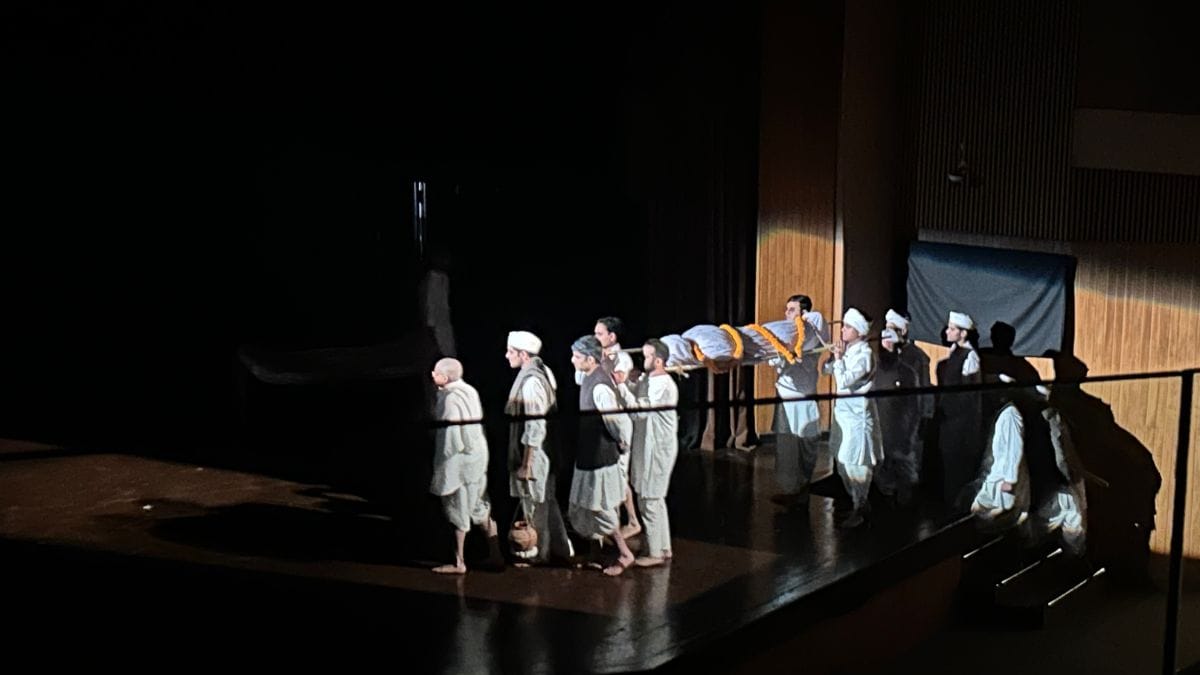
“Her death would be better than injecting the penicillin made by the British. Let nature take its course,” Gandhi tells his son. Soon, the theatre resonates with the sound of “Ram naam satya hai (The name of Ram is the truth)” as Kasturba’s funeral procession moves out of the stage.
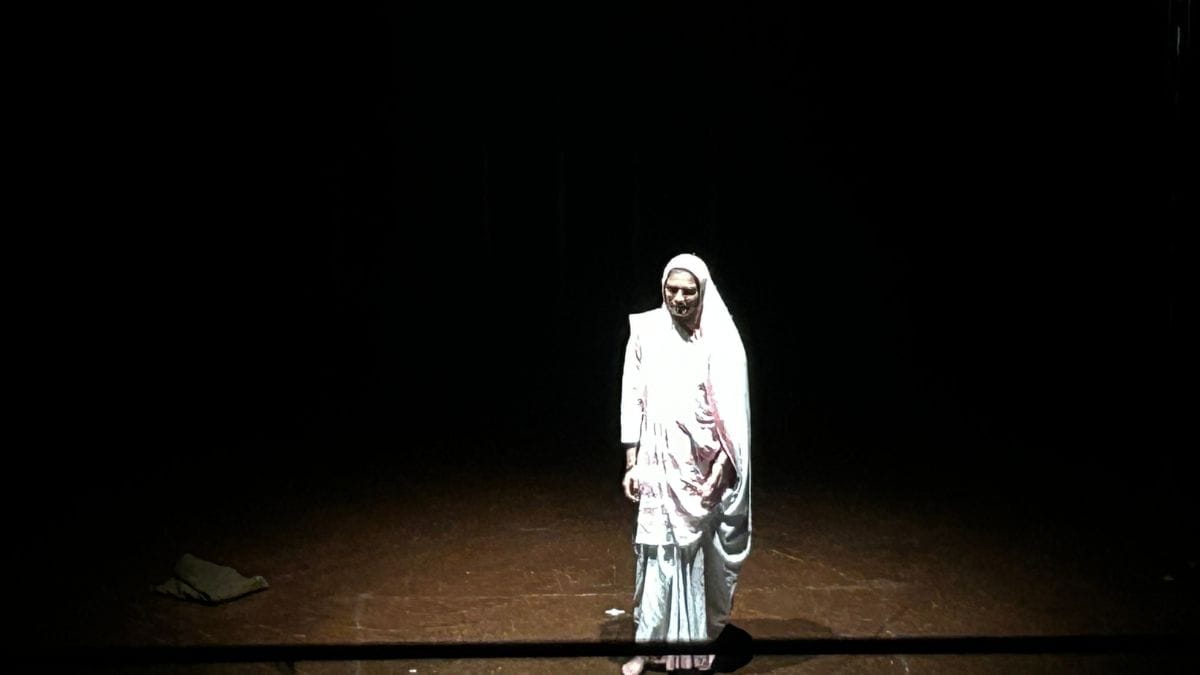
A troubled relationship
The tension of their marriage plays out in the backdrop of the unrest in India. There’s a violent moment when Gandhi pushes Kasturba out of the house for not wanting to clean the toilet. Another time, he accuses her of cheating on him. To teach her a lesson, he goes to a brothel.
It’s left to Kasturba to fight for her needs, and her independence, all the while conforming to the role society has assigned her to play—the dutiful wife. It’s a painful balancing act. She stands by Gandhi but also points out that his constant fight to decolonise India has led to her losing her own identity.
She’s been Gandhi’s wife since the age of 14. They got married in 1883. He was 13 years old (He was six months younger than Kasturba). Historians, playwrights and authors, have, over the years turned their gaze on this woman. Some of the more notable works include Kasturba: A Life by Arun Gandhi and Kasturba: Wife of Gandhi by Sushila Nayyar as well as Being Mrs. Gandhi by HuM theatre group.
In a series of over seven scenes, the play examines key moments in their personal life. How Gandhi never reached out to her when he moved to London in 1888 to study law. How he asked her to sleep alone long before he decided to attain celibacy. And finally, this girl, who did not know how to read or write when she married Gandhi, transformed to become a political activist and a key figure in India’s freedom struggle.
Kasturba emerges as an advocate of women’s rights. She walked beside Gandhi during the Dandi march. In the privacy of their home, she fought for her needs after Gandhi told her that he wanted to attain brahmacharya or celibacy.
When he tells her that he wants to test his character and learn to control his desires, Kasturba firmly gets up for herself and asks, “What about a woman’s wishes? You will always be Mohan (another name for Hindu god Krishna)… I will always be your daasi (maid).”
Also read: Mir Taqi Mir sidelined for too long. His manuscripts being archived now
‘Just Kasturba’
According to the director, the intention behind making the play was to look at Kasturba as a person who fought for India’s freedom, a person who supported Gandhi throughout but never got recognised for the amount of work she did.
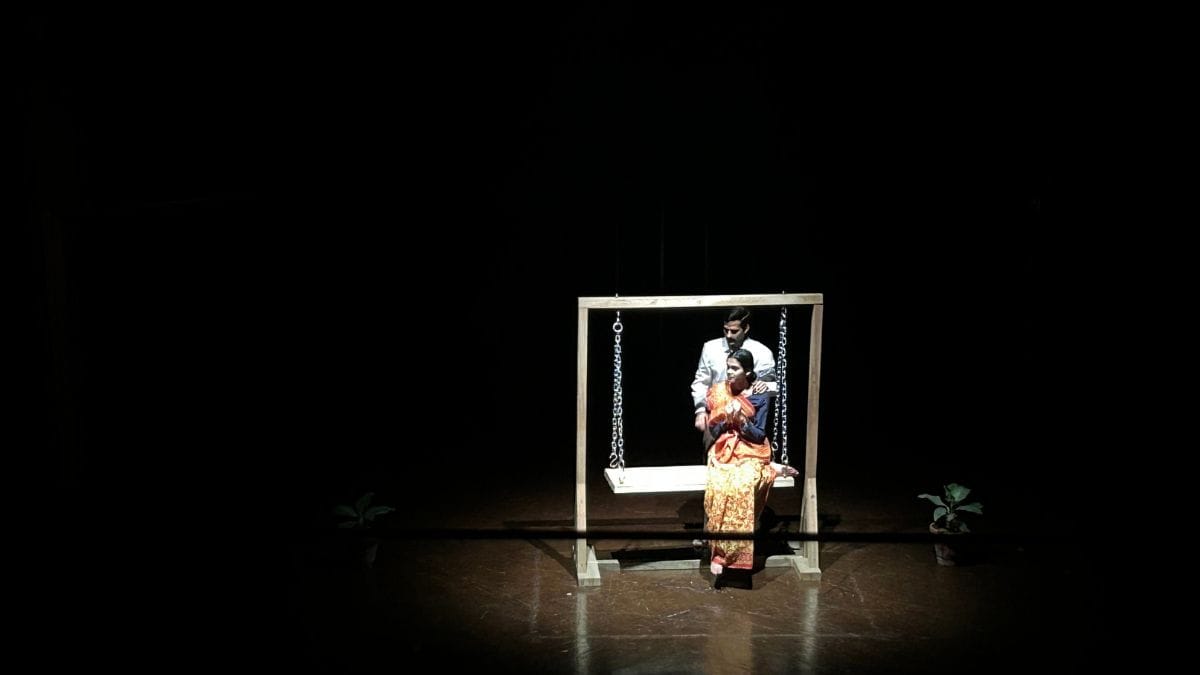
“Why is she always standing behind him, why doesn’t she stand with him? She was a strong leader herself,” said Marwaha.
In another powerful scene, Kasturba enters the stage and catches her husband sleeping with two naked women. She cries and tells him that this is not what he should be doing at this age.
Gandhi continues to explain that the purpose of sleeping with women was to test his willpower to abstain from sex.
“I will never have a right to do this. I am just a woman,” Kasturba responds. And later she accuses him of changing his lifestyle constantly. “…But you never consider my wishes,” she tells Gandhi.
Marwaha had six individual characters playing the role of Gandhi in alternate scenes and stages of his life.
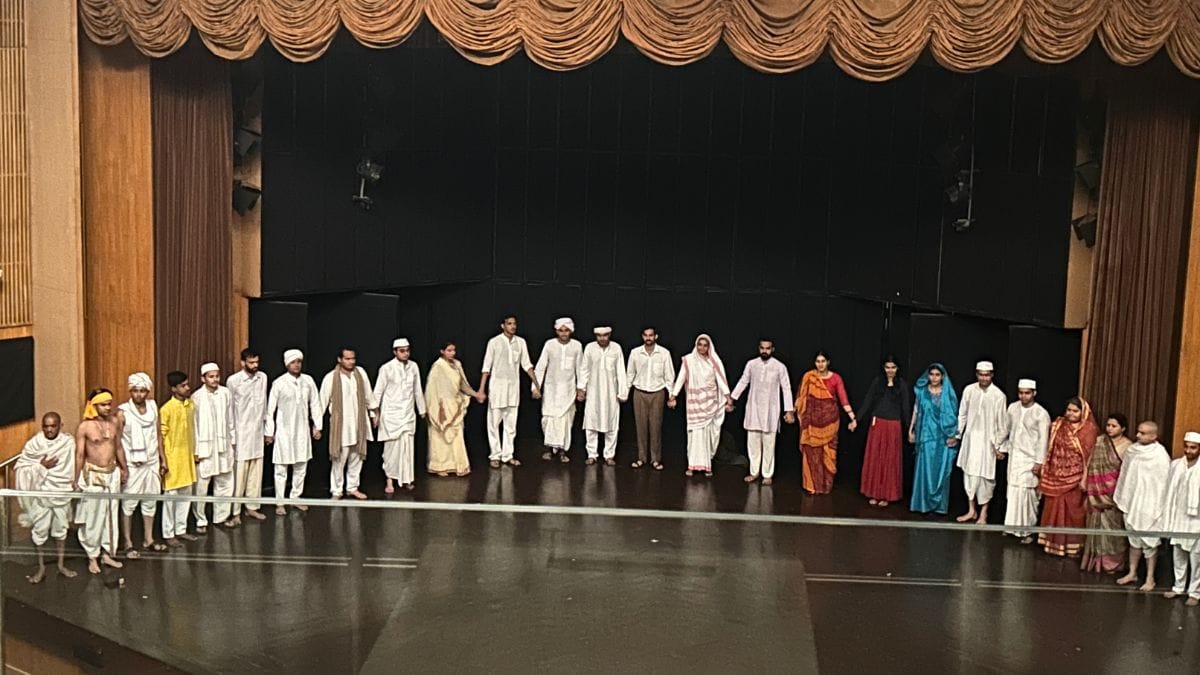
For many in the audience who have grown up on a more one-dimensional view of Gandhi, the 90-minute play was an eye-opener. Speaking to ThePrint, 24-year-old law student Gauri said what struck her deeply was how Kasturba’s sacrifices were often overshadowed by her husband’s “towering legacy”.
“Kasturba’s role was not just that of a wife but a partner in the struggle for Independence,” she said.
(Edited by Ratan Priya)



